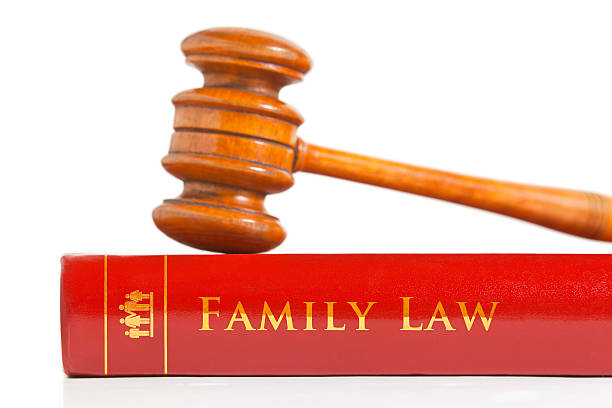In the context of family law, an injunction order is a court order that prevents a person from engaging in a certain act. Alternatively, an injunction order may also require a person to do a certain thing or act. To apply for an injunction order, all relevant parties must consent to the application. The Federal Circuit Court or Family Court can grant an injunction.
The Court can make an injunction order either unconditionally, or for a term it deems will be an adequate remedy. Broadly speaking, these orders can be of different types. This includes mandatory injunction, prohibitory injunction, interim injunction, interlocutory injunctions, final injunction or permanent injunctions. Status quo orders are also closely associated with injunction orders.
However, in this article, we will explore injunctions only in the context of family law. In family law, a party can apply for the order by themselves if it is harmful to seek consent from the other party. For example if it is for the protection of a person from the other party, it may be detrimental to seek consent from the other party. Parties can either apply for a final or interlocutory injunction order for financial matters and/or parenting matters.
The leading family law legislation in Australia, the Family Law Act (1975) outlines matters related to injunction order. It outlines this in Part VII, Division 9 of the Act. Section 68A of the FLA provides an introduction for the subsequent Sections. It states that Division 9 of Part VII of the Act deals with proceedings for injunctions in relation to children.
This article deals with the meaning of injunction order. Moreover, it discusses points highlighted under Part VII, Division 9 of the FLA that includes three sections.
Section 68B Family Law Act: Injunction Order
Section 68B of the FLA states that the Court can make an appropriate injunction order if beneficial for the welfare of children. This type of injunction orders are related to parenting matters in family law. The types of injunction orders that the Court can make include an injunction order for:
- the personal protection of the child; or
- the personal protection of a:
- parent of the child, or
- person with whom the child is to live , communicate or spend time with under a parenting order, or
- person who has parental responsibility for the child
3. restraining a person from entering or remaining in a place of residence, education, or employment of the child, or any specific area or region that consists of above-mentioned places
4. restraining a person from entering or remaining in a place of residence, education or employment, or any specific area associated with any of the above, of any person referred to under point (2)

Section 68C FLA: Powers of Arrest
This section discusses points in relation to breach of injunction order that is in force under Section 68B. As discussed above, the Section is for the personal protection of a person, or a child.
Furthermore, the one whom the Court makes an injunction order against is known as the respondent, whereas the one who is to be protected by way of the injunction order is the protected person.
This Sections states that a police officer can arrest the respondent without a warrant. But police officers can do so only if they believe on reasonable grounds that the respondent has breached the injunction order by:
- harassing, threatening or stalking the protected person,
- causing (or even threatening to cause) some form of bodily harm to the protected person
Injunction Order: Financial Matters
When discussing financial matters in family law, Courts can use an injunction order to prevent or restrict a party from engaging in any activity. This can include activity or conduct that can reduce the assets available for property division. A party can alter the pool of assets so that he/she gets more from the division of assets. However, Courts can make orders that prevent a party from dealing with the asset pool.
While Section 68B outlines matters in relation to injunction orders for parenting issues, Section 114 outlines mattes in relation to financial issues in family law. According to this Section, it can make orders:
- In relation to the property of a party to the marriage,
- For the personal protection of a party to the marriage,
- For the protection of the marital relationship,
- To prevent a party to the marriage from entering or remaining in the matrimonial home, or the other party’s place of work or residence,
- In relation to the use or occupancy of the matrimonial home
Moreover, for these orders, the Court uses slightly different standards than those they apply while making orders for parenting matters. The Court needs to consider whether the order is necessary for the personal protection of a party.
What Happens if a Party Breaches an Injunction Order?
A breach of an injunction order can attract penalties such as a bond, a fine or imprisonment in serious circumstances. In case a person breaches an order, the person who is being protected by the order can file a contravention application.
Through the contravention application, the person can seek enforcement of the order. The person filing the contravention application must also prove the contravention or breach of order. Only then can the other party to be punished.
While police can arrest a person who has breached an injunction order without a warrant, they cannot arrest the person for breach of orders that were not meant for the protection of a person. State and territory police officers, and members of the Australian Federal Police can make arrests in case of breach of orders in relation to protection of a person.

Importance of Seeking Legal Advice from Family Lawyers
Family lawyers have a wealth of knowledge in dealing with a range of issues including parenting and financial issues. It is important to seek legal advice from lawyers if you are dealing with a legal matter where an injunction order becomes necessary.
These situations are extremely complex, and they can have serious legal repercussions. If you require legal advice, it is important to speak to lawyers regarding your plan of action.
At JB Solicitors, our leading experts on family law are passionate about reaching desired outcomes. Our team works together to formulate a solid legal plan for clients, that ensures that clients are able to reach satisfactory outcomes in their legal proceedings. We also represent our clients in family courts and in the Supreme Court (although SC is involved very rarely, only in cases of serious issues concerning children).
Moreover, our lawyers can help prepare various court documents as well. For more information, do not hesitate to contact our friendly and experienced team. If you have any enquiries, contact us today.
